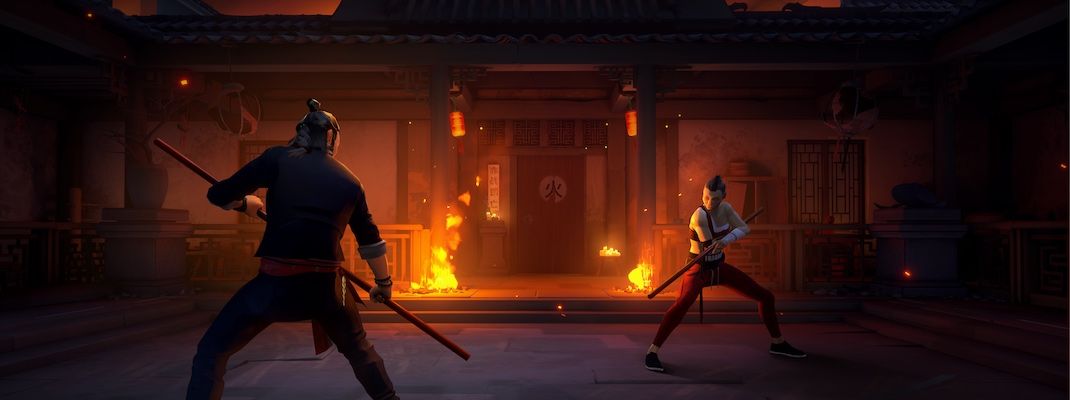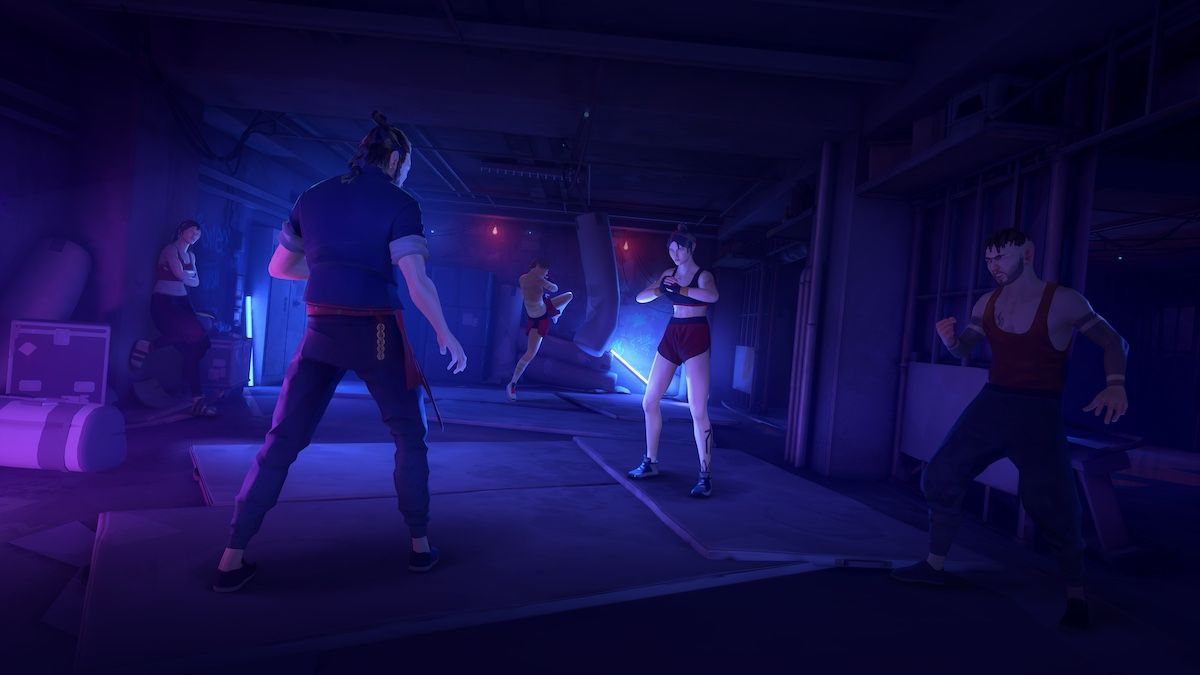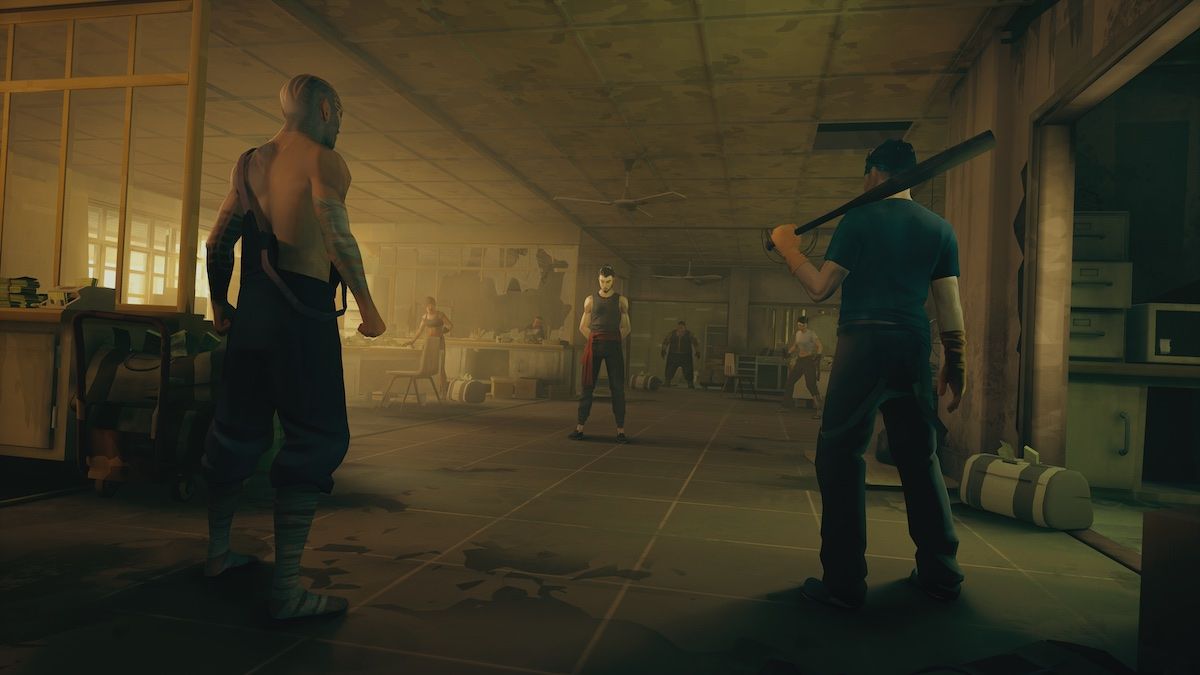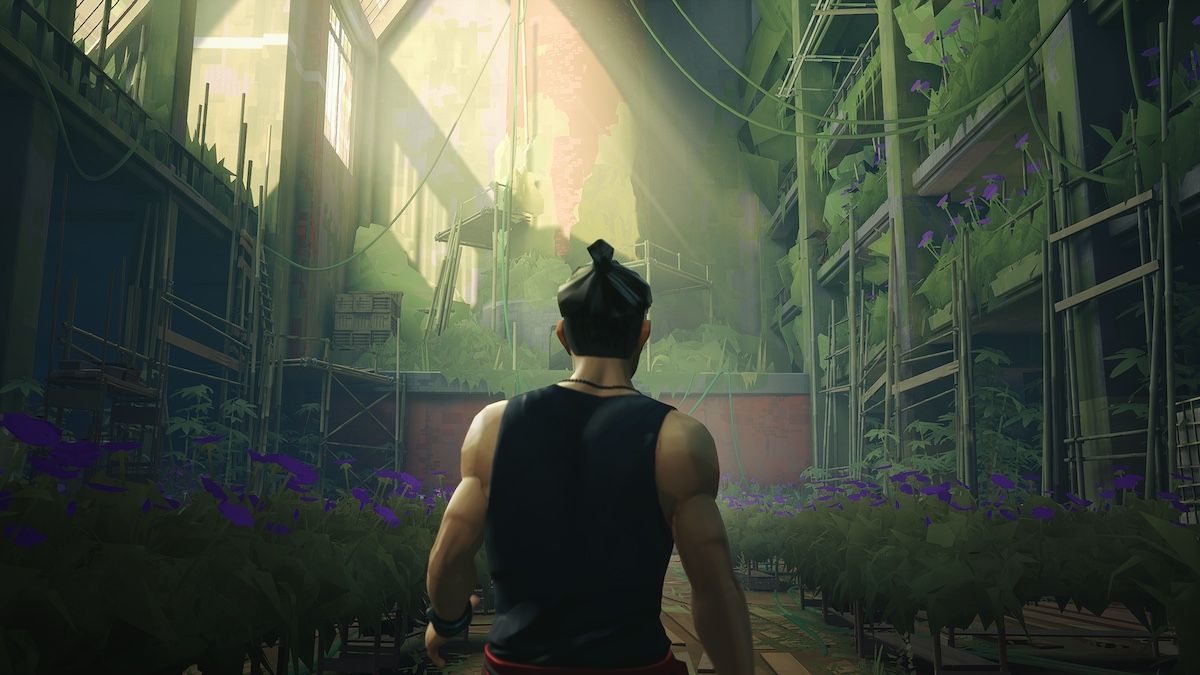Not for the first time has the importance of "first impressions" been so vital to the conclusion of a game upon release. But haven't we not been in this exact position only recently? You needn't have to think far back to conjure any more relevant an example than that of Marvel's Guardians of the Galaxy last year. A game that, when revealed, didn't exactly set the world on fire -- in no way aided by gameplay footage that was serviceable albeit appeared to lack the polish one would expect from AAA-level production. Fast-forward a few months to October and the end result couldn't be any further from those former perceptions in all the right ways. Playing through Sifu -- another kung-fu styled entrant from the studio that brought us Absolver -- I'm reminded of this same turn-around in fortunes. A revelation maybe not as unforeseen as Guardians was, but one with a striking resemblance. Last December's first impressions stemming from so deliberate a self-contained, cut-off vertical slice that, for obvious reason, wasn't giving us the whole picture.
A vertical slice that was, as it turns out, divorced far more from the broader, game-spanning mechanics and rule-sets than previously assumed. Its universal challenge, aging premise (a consequence of player-death) and more so, the notion that players have only a set number of attempts to nail things down, while accurate to what the game provides, not entirely reflective of how well the experience generally plays out. There are instances where one can come away from first impressions feeling uncertain only to then be surprised that the final release has managed to pull it off against all odds. Then there are, sadly, instances like Sifu. A reminder that that turn-around can also go in the opposite direction. By no means is this an early signal of disaster, or even that grand a disappointment in what Sloclap's latest has conjured. Fans of Absolver will of course feel the most benefit in what the French studio are going for here. The multiplayer component may be gone, but the idea of one getting back up after being downed (over and over again), simple in concept, has its potential in a solely single-player, story-led campaign.
To finally conquer the grueling gauntlet of mobs and punishing boss fights alike is one players will be willing to refine to some extent. Satisfaction soon felt in how one goes from dying five or six times in the first level, to only once hours later -- knowing full well you can do even better and go a full level, unscathed let alone without ever respawning at all. How Sifu rationalizes having to repeat former levels isn't the most convincing or eloquent. But as reluctant as you might feel, there's joy in seeing natural progression -- learning the ins and outs of the game -- properly materialize before you. It's only when you get into how the game frames and as mentioned, offers reason for this form of challenge, that Sifu unfortunately makes one too many unforced errors. Worse, errors that quickly grate against the joy mustered in figuring out a route to survival. Because even the mechanics themselves are culpable in what is a game of seemingly ill-advised design choices and lackluster reward.
In referring back to my preview from last year, Sifu -- when taken as a standalone slice of a singular level -- is unforgiving when it comes to player-made mistake, but understandably so. Being too greedy and too impatient in taking out individual enemies is a lesson the early proceedings do a commendable job at highlighting. There's hardly any easing in its players -- outside of some interspersed button prompts mid-title roll -- meaning that you have to learn and learn fast if you want any hope of tackling the late stages, let alone seeing end credits. Taken on that basis and that basis alone, the notion of learning through trial-and-error is nothing to use against the game. It's from here where Sifu rolls out a generally-unchanged formula across its five main levels and roughly 8-10 hour length. A linear, corridor-like sequencing of environments to trudge through that rarely provides much by the way of deviation or deduction with level design.
Momentarily dealing with a group of foes in spaces both tight and spacious alike. The simplest route to success requiring you to break a foe's guard before capping it off with a finishing move. Each downed enemy dealt with in this fashion, restoring a portion of your health. Meaning there's at least always some small incentive to combat and given how deadly even the most basic of grunts can be with a simple swing, engaging enemies does fortunately feel much more a deadly risk than most players will perhaps give it credit for. Which to Sifu's credit, it instills in the fact enemies seldom stand about waiting to get knocked out. Being surrounded by a group is by far one of the most risky scenarios of Sifu in that enemies don't wait to try and get an easy strike at one's side or behind. Meaning you're potentially (and constantly) juggling up to three or even four foes at the most hectic of moments. The environments aren't always the best structured in this regard -- the inconsistent camera especially can end up the player's biggest antagonist. But when it's left to shifting from one foe to the next, desperately hoping to knock one down all the while not forgetting the others circling around you, Sifu's combat is worthwhile enough to grapple with.
Indeed, grappling with the very inevitability of combat is one Sifu puts surprising emphasis on and is all the better for it. Wherein the incentive of recovering lost health becomes even more a calculation of risk once short-cuts between level areas begin to open up. Picking up a password or key from later on, allowing you to skip certain set-pieces and worrisome spots if all you're bothered on is getting to the finishing line with as little risk to death-count as possible. Even extending to that of acquiring items that unlock areas from previous level -- one of Sifu's more convincing arguments in favor of repeating past stages for hidden collectibles. At the end of the day, getting to the final level with as low a character age becomes the prime objective of Sifu. That inevitable replaying of levels to get a better handle of events can feel a touch forcible and reluctantly employed, but had the shortcomings ended there, perhaps one's issues with Sifu wouldn't be as grand as they unfortunately are.
But no, it's because the combat barely evolves beyond its serviceably-janky delivery where the nature of its difficulty proves too much of a problem to ignore. Particularly with how horrid and uneven the progression of challenge gets between levels. The second main boss especially by far the largest spike in difficulty throughout Sifu and one where the lack of nuance eventually grated to the point of ruining any and all enjoyment one had built up prior. To then figure out I could just exploit (and unashamedly abuse) the dodge mechanics and run amok with my character's i-frame's and spam attacks should give you a clear enough indicator of Sifu's greater failings. While the developer, in the midst of writing this very review, did put out a note stating their intent to patch the difficulty of bosses in time for the game's public release, it doesn't change the fact that the janky nature of combat doesn't suit the extraordinarily high bar expected for its players to triumph. Not least if you want to give yourself enough respawns in later levels. Eventually that lack of care for the finer details bleeds into combat in totality, especially when you realize abusing that same dodge function makes experimenting with move-sets completely irrelevant later on.
Perhaps the uneven boss fights wouldn't have stirred so much an irritation had Sifu held anything else to stir one's intrigue and convince you that that figurative banging one's head against a wall would be worth it eventually. But even the incentive to unlock new abilities and skills to apply in combat not only feels irrelevant, but worse comes across like an unnecessary carrot-on-a-stick the game poorly misjudges. While the idea of having to spend four/five/six times the XP to permanently unlock an ability is a nuisance in itself, the idea that progression towards that unlock doesn't carry over upon revisiting a previous level -- in which all abilities acquired after said moment are lost and have to be unlocked again -- feels like Sifu overstepping the mark. In a bizarre turn of events: punishing players for investing more time in the game, rather than rewarding them.
Even its narrative premise -- which evidently points to something supernatural existing in its setting -- quickly gets pushed to the side. Those earlier suggestions of the game playing up to its suggestively B-movie gimmicks, ending up being little more than a naive hope. The game in fact taking both its tale and its tone far more seriously than expected. Some segments mid-level attempting an added artistic or aesthetic flair, but never meshing or adding to the presentation outside of change for change's sake. Even the main locales like a multi-floor corporate headquarters or pristine post-modern art gallery don't offer much by way of stand-out or interesting diversions from the regular corridor, room full of enemies, corridor, room full of enemies repetition. Repetition hindered more so by encounters that so quickly settle into the same and quickly-tiring throwing of a set number of enemies to defeat before the accompanying exit is unlocked.
Closing Comments:
When taken as but a sampling of the entire experience, there does still linger some joy to savor in the combat and manner of challenge posed in Sifu. Set-pieces that unashamedly kick off with questions being asked and players put on the back-foot, even if said sequences never evolve beyond such basic a pitch as clearing out groups of foes. Unfortunately, it's the broader gameplay loop of retrying, revisiting and repeating one's steps -- in more ways than one -- that in most cases doesn't add up to a gratifying or mechanically-fluid whole. A difficulty curve especially that at the time of writing feels woefully structured and a precarious area whereby most players may be turned off entirely. Even the prime aging system feels little more than a dispensable gimmick, divorced of any real impact on gameplay. The game is not without some salvageable bursts of satisfaction, of which there are plenty to just about counter its middling level design and uneventful narrative alike. It's for that reason why Sifu is spared from any less graceful a status than that of being inconsistent, rather than wholly underwhelming.





